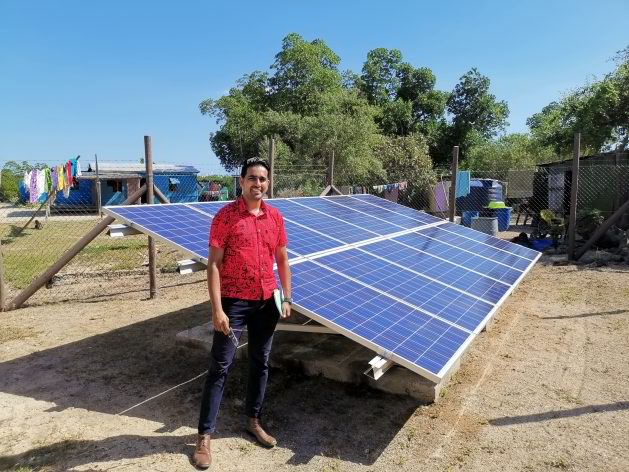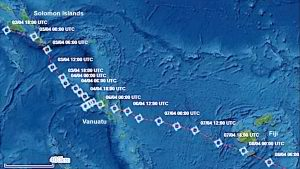
Vineil Narayan on Vio Island in Lautoka. Narayan is climate finance expert who talks about how the CommonSensing project is assisting small island states with finance and tools to mitigate climate change and its devastating effects.
– The UK Space Agency’s International Partnership Programme (IPP) CommonSensing is led by the United Nations Institute for Training and Research (UNITAR) through the United Nations Satellite Centre (UNOSAT), which is working with selected partners including the Commonwealth Secretariat, to improve resilience to the effects of climate change in Fiji, the Solomon Islands and Vanuatu.
Vineil Narayan, Climate Finance Specialist and Head of Climate Change and International Cooperation Division, Ministry of Economy, Fiji, talks about the use of CommonSensing data in climate change adaptation and mitigation; and its potential in accessing the much-needed climate finance.
Neena Bhandari: How easy or difficult has it been for Fiji to access climate finance?
Vineil Narayan: Climate finance is a broad term, which includes public and private sectors. For Small Island Developing States (SIDS), particularly in the Pacific, one of the key issues is to be able to attract appropriate financing for climate-centric projects and development programmes.
There’s a massive mismatch between climate finance mobilised and climate finance needs of the region. In the public sector space, it has been relatively less difficult for us to attract climate finance that’s coming through bilateral support from countries or the Green Climate Fund (GCF). But we have been struggling to attract climate finance at an appropriate scale from the private sector. It is because we’re competing against larger economies with greater returns and potential for investors.

CommonSensing tracks Cyclone Harold through the Pacific Islands using data from satellites. The severe tropical cyclone caused widespread destruction in the Solomon Islands, Vanautu, Fiji and Tonga in 2020. Credit: CommonSensing
NB: Why time is of the essence for accessing climate finance for Fiji and other Pacific Island countries, which are facing immediate impacts of climate change and are more vulnerable to its consequences?
VN: In countries such as the United States and Australia, the impacts of climate change, for example, frequency and intensity of bushfires, are only being felt now and people are recognising that climate change is actually happening. But for us in the Pacific, climate change has been a fundamental development challenge for decades. It has already stifled our development progress over a long period of time. The urgency for climate action is not new for us in the region. ‘Time is of the essence’ is something that we’ve been saying to the world for so many years.
When The Paris Agreement was being discussed, the Pacific countries particularly demanded limiting temperature target to 1.5 degrees Celsius to reduce climate impacts. We have villages blown off the map due to storms. We have communities that are disappearing due to sea-level rise. It is posing a significant threat to our low-lying atoll neighbours like Kiribati and Tuvalu. They will disappear within the next few decades if we are not able to curtail rising sea levels expedited by climate change.
